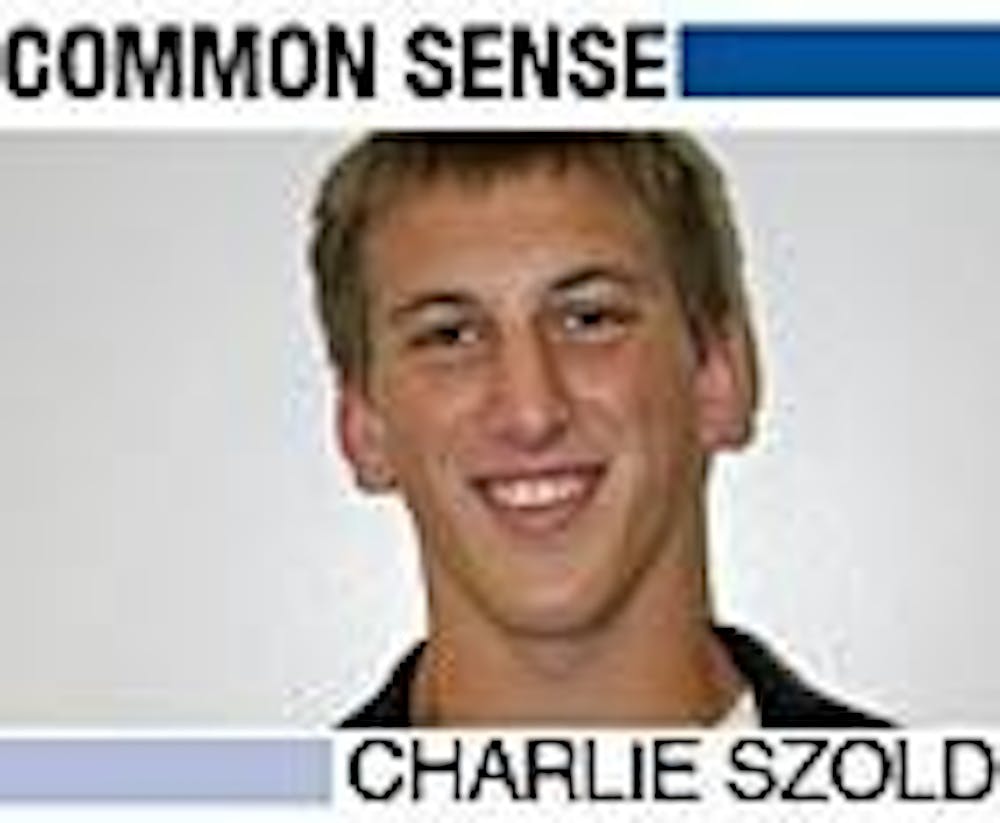Have some faith. I'm not talking about the religious kind - that's all well and good. I'm talking about personal faith in this country. This past weekend, The New York Times Magazine published a gigantic article about the United States' slipping global position, pointing to the emergence of China and the European Union as global economic players and policy shapers.
This column is unfortunately an extension of what many Americans now feel and believe - that our time at the top has come and gone. This "malaise," which Jimmy Carter identified in the late '70s, has come back with a larger and more destructive scope in the post 9/11 world. What Parrah Khanna, the piece's author, and the American people fail to recognize is that the EU and China's emergence are because of, not in spite of, American policy.
Since World War II, America has pushed a liberal economic agenda across the globe, opening up foreign markets sometimes with a carrot, sometimes with a stick. After World War II, we invested billions of dollars into a shattered Europe and Japan, paving the way for each region's economic and political success.
In 1970, the near height of the Cold War, President Nixon initiated talks and visits with China that have now led to our liberal trade and economic ties with the colossus of the east. This trade has benefited not only China but all of Asia. While we may have acted out of personal interest rather than altruism, it seems clear that today's global economic boom is partly due to American investment, aid and policy.
Furthermore, despite recent hiccups in the market, America still boasts the "largest, most technologically competitive" economy in the world, according to the CIA Factbook. We are global leaders in medical, military and aerospace technology, and we are globally competitive in every other scientific category.
But perhaps the most telling indicator of American economic might is how the recent economic downturn on Wall Street has reverberated around the global marketplace, causing massive losses in Asian and European stocks. As is commonly said, when we cough, they sneeze. Even more important is that when they cough, we don't sneeze. Throughout the '90s, as the Japanese economy stagnated, the U.S economy performed admirably. Even more recently, as the European economy posted anemic growth, the American economy maintained impressive numbers. Even now as the media panics over the "sub-prime crisis," just about all rational economic experts agree that the ensuing recession will be mild and short.
People have always had a love-hate relationship with the United States. Our position at the top ensures that. Over these last eight years, events outside of our control and the Bush administration's policies have pushed many toward the "hate" category. As this country seemingly alienates itself from the rest of the world - a dangerous move in a globalized society - it is easy to look at our isolation as permanent. Yet nothing could be further from the truth. Another New York Times article recently published discussed how the whole world has been watching the presidential election coverage as closely as we have. Each separate country, with separate interests, is watching for different reasons. Each country is watching because they realize the importance of American policies on their own and because something about American politics and culture is undeniably appealing and exciting.
So as I said earlier, have some faith. The future isn't as murky as the Republicans and Democrats and The New York Times would lead you to believe. Of course we can do better, and of course we have problems, but we also happen to live in a nation of great economic, military, cultural and political power. It will take more than a reinvigorated Europe and resurgent China to topple the United States.
Charlie Szold is a freshman in the School of Public Affairs and a conservative columnist for The Eagle.




